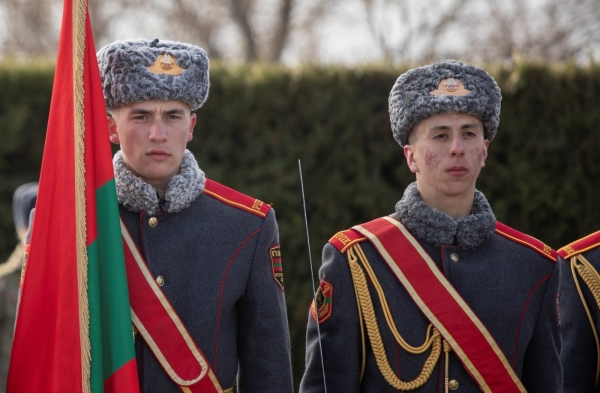New War Front May Open Up with Ukraine as Moldova’s Transnistria wants to Join Russia
The secessionist region of Transnistria, internationally recognized as part of Moldova, appears poised to inject new tension into Russia’s war in Ukraine. A congress of deputies from various local administrative levels is scheduled for February 28 in the capital, Tiraspol, a format previously reserved for significant events since the unilateral declaration of independence in 1990.
Dissident politician Ghenadie Ciorba from Transnistria suggests that the congress will appeal to Russia to welcome the region into its territory, echoing a similar plea made in 2006 after a contentious referendum. Despite claims of 97% support for integration into Russia, the 2006 referendum went unrecognized by Moscow.
Observers in Tiraspol and Chisinau believe the congress will likely involve propagandistic and provocative gestures aimed at Moldova and Ukraine. They emphasize that Moscow’s support or territorial access to Transnistria would hinge on conquering the Ukrainian city of Odesa, referred to by President Vladimir Putin as a “Russian city.”
Former Russian President Dmitry Medvedev’s recent statement urging Odesa to “come home” reflects Moscow’s historical claims. However, sources in Tiraspol respond ironically, stating that Russia lacks the capacity to conquer Odesa presently.
President of Transnistria Vadim Krasnoselsky, the driving force behind the congress, has refrained from involving the region directly in the Ukraine war, blocking initiatives supporting Russia’s cause. Krasnoselsky even received the Ukrainian ambassador to Moldova and offered assistance in transporting Ukrainian grain blocked by Russia.
The congress is seen by some as more aligned with Russian interests than those of Transnistria’s inhabitants. Concerns arise that recognition by Russia could make Transnistria a legal target for Ukraine.
Krasnoselsky justified the congress, citing “pressure from Moldova” violating the rights and worsening the socio-economic situation in Transnistria. The Moldovan customs regulations, ending tax privileges for Transnistria’s international trade, prompted this response.
The congress could be Moscow’s response to maintain influence over Moldova, a candidate for EU incorporation, and counter the ongoing process initiated by Kyiv. Trade and labor migration from Transnistria to Russia have been significantly impacted by the war, leading to a growing preference for Moldovan passports among its inhabitants.
Transnistria, with a population of 364,000 as of September 2023 separated from Moldova in 1990 due to pro-Romanian policies. Since the 1992 agreements, it has maintained a fragile stability with Russian military presence, a point of contention with Moldova demanding withdrawal. Russia’s recognition of “people’s republics” in Donetsk and Luhansk in 2022 adds complexity to Transnistria’s geopolitical situation.





